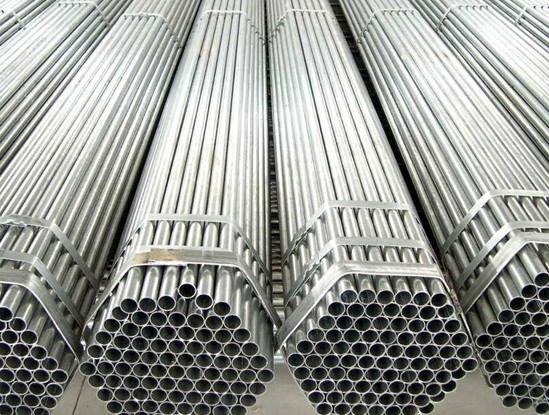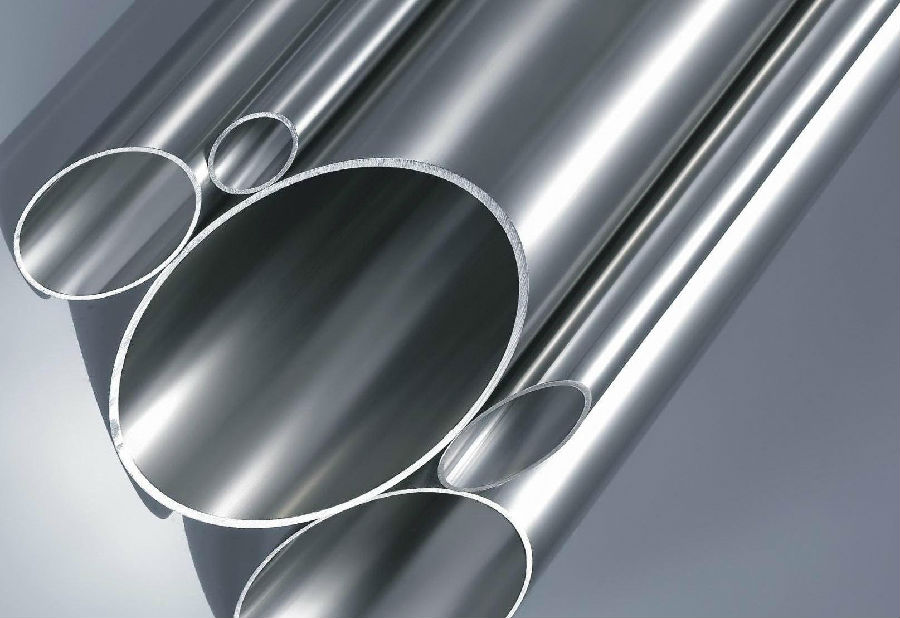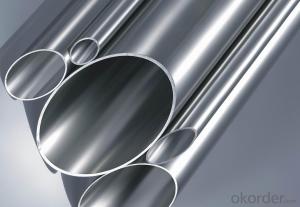Seamless Steel Pipe from China Mainland
- Loading Port:
- Qingdao
- Payment Terms:
- TT OR LC
- Min Order Qty:
- 2000 PCS
- Supply Capability:
- 38000 PCS/month
OKorder Service Pledge
OKorder Financial Service
You Might Also Like
Seamless Steel Pipe from China Mainland Details
| Thickness: | 4 - 100 mm | Section Shape: | Round | Outer Diameter: | 20 - 500 mm |
| Place of Origin: | China (Mainland) | Secondary Or Not: | Non-secondary | Application: | Structure Pipe |
| Technique: | Hot Rolled | Certification: | Other | Surface Treatment: | Other |
| Alloy Or Not: | Is Alloy | Grade: | 10#,20#,45#, 16Mn,10#-45# | Standard: | BS 1387,BS 6323,GB 3087 |
Packaging & Delivery
| Packaging Detail: | wrapped in bundles with steel strips |
| Delivery Detail: | within 35 days |
Seamless Steel Pipe from China Mainland Specifications
Standard | API 5CT, 5L; ASTM, BS, JIS, DIN |
Steel Grade | API 5L Grade B/ASTM A106B, BS 1387 |
O.D. | 27MM-508MM |
W.T. | 4MM-100MM |
Length | 5m--12m |
End protection | plastic caps |
Outside Coating | black painting, anti-corrosion oil, galvanized or as per required by customer |
Production Capacity | Three mills with full production capacity, 400,000tons per year |
Delivery time | 20 days |
Qualification | independent import and export qualifications |
Main market | Asia, India, Middle East, America, Europe |
Seamless Steel Pipe from China Mainland Pictures


- Q:Are steel pipes suitable for use in sewage treatment plants?
- Yes, steel pipes are suitable for use in sewage treatment plants. They are durable, strong, and resistant to corrosion, making them ideal for handling the harsh environment and corrosive substances found in sewage treatment plants. Steel pipes also offer excellent flow characteristics and can withstand high pressure, making them reliable for transporting wastewater and sewage within the facility.
- Q:How are steel pipes protected against rust and corrosion?
- Steel pipes are protected against rust and corrosion through various methods such as applying protective coatings like zinc or epoxy, using cathodic protection techniques, or by utilizing stainless steel pipes that have inherent resistance to rust and corrosion. Additionally, regular maintenance and inspections help to identify and address any potential corrosion issues early on.
- Q:Are steel tubes and round steel in weight or length when purchased?
- It's priced by weight. The cutting process should size to determine the length (otherwise - please specify the weight of the material), the material ration to calculate weight for cost accounting as.
- Q:What is the role of steel pipes in the telecommunications industry?
- Steel pipes play a crucial role in the telecommunications industry as they are used for the installation of underground and overhead telecommunication cables. These pipes provide protection and support to the cables, ensuring their safety and longevity. Additionally, steel pipes are also used in the construction of communication towers and infrastructure, making them an essential component in establishing and maintaining reliable telecommunications networks.
- Q:What is the minimum wall thickness for steel pipes?
- The minimum wall thickness of steel pipes varies depending on different factors, including the pipe's intended use and the specific industry standards and regulations. Determining the minimum wall thickness generally involves considering factors like the pipe's diameter, material strength, and the pressure or load it will experience during operation. In the oil and gas industry, for instance, the minimum wall thickness for steel pipes is typically specified by industry standards such as API 5L or ASME B31.3. These standards take into account elements such as the pipe's diameter, the material's yield strength, and the maximum pressure it will encounter. In other applications, such as structural or mechanical engineering, the minimum wall thickness for steel pipes is determined by factors like the pipe's intended load-bearing capacity, the desired safety factor, and any relevant building codes or regulations. To establish the specific minimum wall thickness requirements for steel pipes in a particular application, it is essential to consult the appropriate industry standards, codes, or regulations.
- Q:How are steel pipes connected together?
- Steel pipes are typically connected together through various methods such as welding, threading, and flanging. Welding involves fusing the ends of pipes together using high heat, creating a strong and permanent connection. Threading involves screwing the ends of pipes together using threads, while flanging involves connecting pipes by flaring or bending their ends and securing them with bolts. These methods ensure a secure and reliable connection between steel pipes.
- Q:What is lined pipe?
- Is the coating of the inside of the pipe, such as pipe conveying sulfuric acid will corrode, corrosion, but soft plastic pipe, buried in the ground to wall thicker, then you can use the liner and characteristics of hard for using steel pipe laying, sheathed in the steel pipe into the thin plastic tube, it can transport the sulfuric acid,
- Q:The difference between 12Cr1MoVG alloy steel tube and 15CrMo
- 15CrMo is a steel Pearlite Heat-resistant steel, has high heat resistance at high temperature (b = 440MPa) and antioxidant activity, and has certain ability of anti hydrogen corrosion. Because of the high content of Cr, C and other alloy elements in steel, the tendency of hardening of steel is obvious, and the weldability is poor.
- Q:Are steel pipes suitable for transporting gas?
- Yes, steel pipes are suitable for transporting gas. Steel pipes are known for their durability, strength, and resistance to corrosion, making them a reliable choice for transporting various types of gases, including natural gas, oil, and other flammable substances. Additionally, steel pipes can handle high pressure and temperature conditions, ensuring the safe and efficient transportation of gas over long distances.
- Q:What is the difference between steel pipes and FRP pipes?
- Steel pipes and FRP pipes are commonly used in various industries and applications, but they differ in several ways: 1. Material Composition: Steel pipes are constructed from iron and carbon alloys, along with elements like manganese, silicon, and small amounts of other metals. Conversely, FRP pipes consist of a polymer matrix reinforced with fibers such as glass or carbon. 2. Strength and Durability: Steel pipes are renowned for their exceptional strength and durability, enabling them to endure high pressures, heavy loads, and extreme temperatures. Although FRP pipes are also strong and durable, they are comparatively lighter in weight and may not possess the same level of strength as steel pipes. Nonetheless, they excel in corrosion resistance and have a longer lifespan in corrosive environments. 3. Corrosion Resistance: Steel pipes are susceptible to corrosion and thus require protective coatings or linings to prevent rust and deterioration. In contrast, FRP pipes possess inherent corrosion resistance and do not necessitate additional coatings. Consequently, they are well-suited for transporting corrosive fluids or functioning in corrosive environments. 4. Installation and Maintenance: Installing steel pipes necessitates specialized welding or threading techniques. Consequently, installation can be more labor-intensive and time-consuming, particularly for complex or large-scale projects. Conversely, FRP pipes are lightweight and easily transportable and installed. Often arriving in pre-fabricated sections, they expedite installation, reduce labor requirements, and demand minimal maintenance in comparison to steel pipes. 5. Cost: Generally, steel pipes are more expensive than FRP pipes due to the higher cost of raw materials and the need for additional corrosion protection measures. FRP pipes offer a cost-effective alternative, particularly in applications where corrosion resistance is paramount, as they eliminate the necessity for expensive coatings or linings. Ultimately, the selection between steel pipes and FRP pipes depends on the specific requirements of the application. Steel pipes are favored for their high strength, whereas FRP pipes offer advantages such as corrosion resistance, lightweight construction, and cost-effectiveness.
1. Manufacturer Overview |
|
|---|---|
| Location | |
| Year Established | |
| Annual Output Value | |
| Main Markets | |
| Company Certifications | |
2. Manufacturer Certificates |
|
|---|---|
| a) Certification Name | |
| Range | |
| Reference | |
| Validity Period | |
3. Manufacturer Capability |
|
|---|---|
| a)Trade Capacity | |
| Nearest Port | |
| Export Percentage | |
| No.of Employees in Trade Department | |
| Language Spoken: | |
| b)Factory Information | |
| Factory Size: | |
| No. of Production Lines | |
| Contract Manufacturing | |
| Product Price Range | |
Send your message to us
Seamless Steel Pipe from China Mainland
- Loading Port:
- Qingdao
- Payment Terms:
- TT OR LC
- Min Order Qty:
- 2000 PCS
- Supply Capability:
- 38000 PCS/month
OKorder Service Pledge
OKorder Financial Service
Similar products
New products
Hot products
Related keywords





























